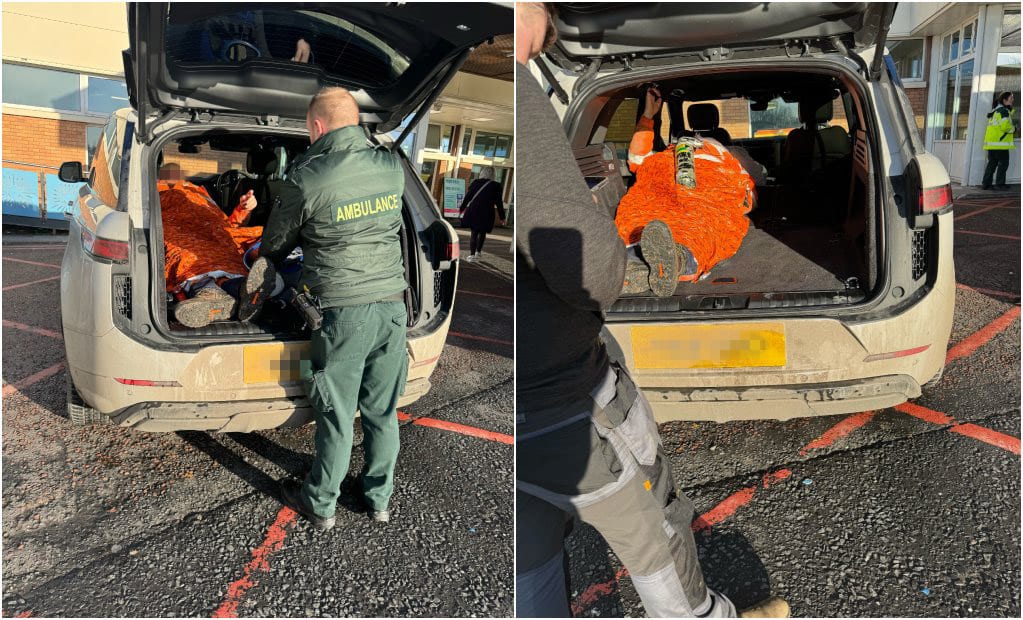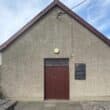
An Armagh man had to be taken to hospital in the back of a car after he lay for two hours without an ambulance.
It happened today (Thursday) when business owner Paul Coyle was contacted and told that a relative had fallen in the Drumsill Park area of the city.
The NIFRS were on the scene and had provided oxygen to the patient and put him on a board, but were unable to take him to hospital, leaving Paul to take matters into his own hands.
Paul says he contacted Armagh I to draw attention to the extreme wait times faced by those in need of an ambulance, stressing that it isn’t the ambulance service he blames, but the politicians.
The man had been working with a colleague, who had contacted the Ambulance Service. Despite this, Paul says “nothing was happening”.
Said Paul: “I got a call because he had fallen and he had hit his head. He had lay for nearly two hours and they couldn’t get an ambulance.
“Then the Fire Service came over and they put him on a board but they weren’t able to transport him. I was called and they helped lift him into the back of my car and then transported him to hospital.
“I was left with no choice, there were no answers coming back that there would be somebody coming.
“I was contacted very late in the day; if I had a van I could put him into. I hadn’t so we put the seats down in our car and luckily enough he fitted in.”
Once they had transported the man to the hospital, the pressures faced by the health service became more apparent.
“When we got to Craigavon it was also a nightmare. It is very chaotic down there today. It’s no fault of the people that work there. It’s just they’re overloaded,” Paul added.
“It was quite serious because they took him in. There’d have been six ambulances sitting with people in them.”
Northern Ireland saw one of – if not the biggest – industrial strikes ever today, which impacted on health, including the ambulance service.
Earlier this week, the NIAS said there would be challenges throughout the period of the strike, as witnessed in the above incident.
“The impact of the action will be felt most on those patients calling NIAS whose need is less clinically urgent,” an NIAS spokesperson said.
“We anticipate that there will be lengthy delays in responding to these categories of calls.
“To ensure that we maintain the levels of cover required to respond to the most urgent calls, we would ask the public to call us only in life-threatening emergencies such as cardiac arrest, loss of consciousness, breathing difficulties, severe bleeding and others.”
A statement added: “We stress that ambulances will still be available. However, they will be limited and we will prioritise patients with life-threatening injuries or illnesses.
“This period of industrial action will impact all services provided by NIAS including Non-Emergency Transport, Emergency and non-Emergency Control Centres as well as Administration and Support Services.
“We will continue to work with Trade Union colleagues to ensure that ‘life and limb’ cover is provided in the quickest possible time.
“We appreciate the support that has always been provided, to our staff, by our local communities and are sure that this understanding will continue throughout the period of Industrial Action and the days that follow as we return to normal service level.”
Read more: Leisure centre staff ferry ‘heart attack’ victim to hospital after ‘no show’ by ambulance






